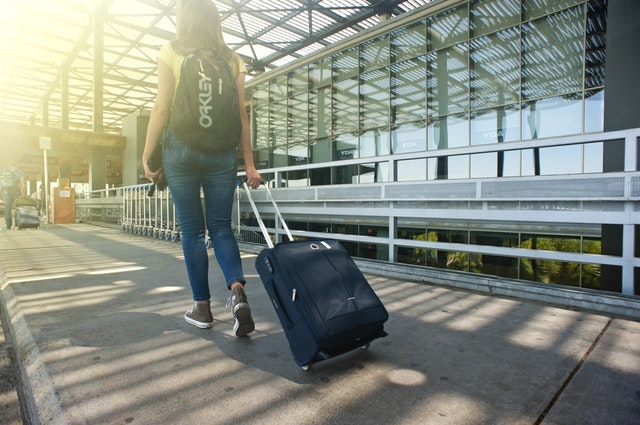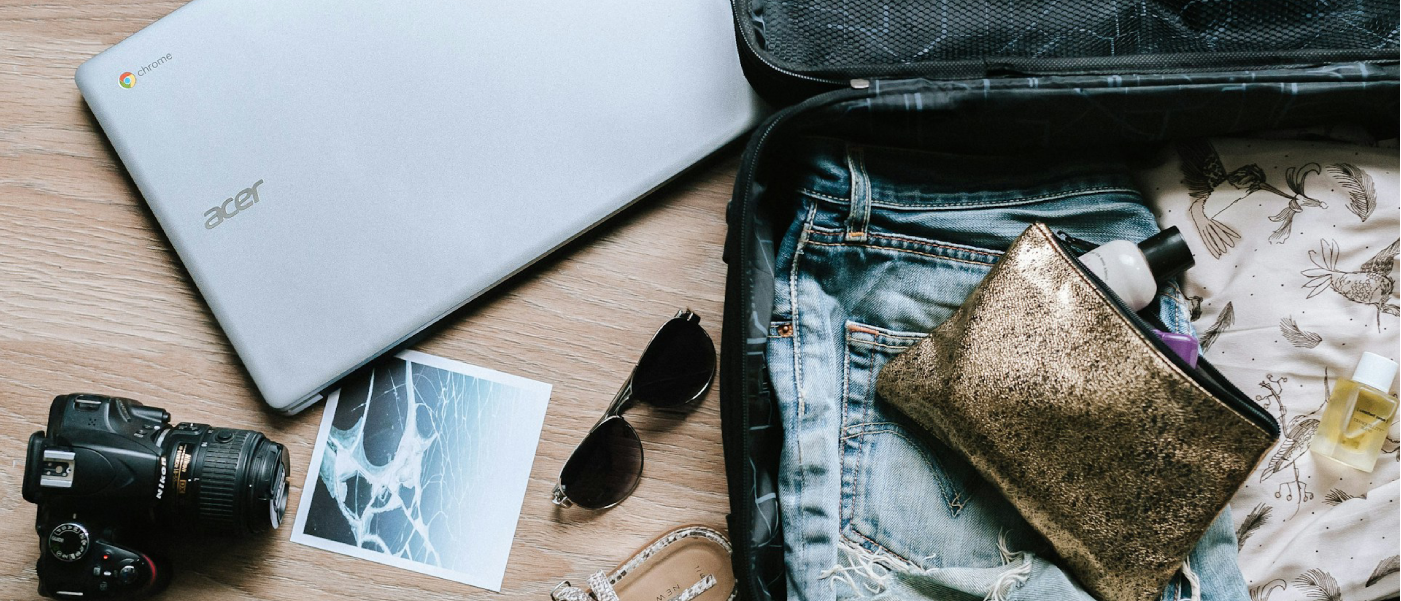Sometimes you have to check your luggage.
You may have too much for an overhead compartment, or you may want to bring things that must be checked. Unfortunately, bags can still go astray.
Many people traveling on airplanes to explore new cities , don’t check bags anymore. Checking luggage can take a lot of time, as can waiting for it to arrive on the other end. Sometimes, however, you need to check your bags. You may need more stuff than would fit in an overhead compartment. You may wish to transport items not permitted in a carry-on bag. You may have a long layover and not want to babysit a valise for several hours in some airport.
Whatever your reason for choosing to check your luggage, you always incur one risk: that it will not appear on the other end. Here are some tips on how to prevent that from happening, and what to do if it does.
Watch the person taking it from you. Baggage handlers are human, and sometimes make mistakes. Watch them as the put the routing tags on your luggage, and make sure they match your destination.
Give your luggage a unique look.
You’ve probably heard the warning to take care when picking up your bags because so many of them look alike. Of course, you would not make this mistake, but you can’t count on everyone else paying attention. If you don’t want to travel with a hot pink or a zebra-striped suitcase, you can make yours distinctive using other methods. Bright ribbons and yarn often are tied to handles. An alternative is to attach some stickers or decals. These items sometimes get knocked off in transit so you might want to use more than one.
Label it.
You may not be able to read labels at a distance, but they are useful once you have the bag beside you. They can be even more helpful if a bag goes astray. So, make sure your luggage has labels. If years have passed since you or a family member created them, phone numbers, addresses, and even names may have changed Inspect the tags to make sure they are up to date, easy to read, and not damaged by water or other elements.
Photograph your luggage.
Just before you depart, snap a picture of your luggage with your cell phone. It may prove useful if you are trying to describe your bags to someone when you are exhausted and anxious, or when you’re seeking reimbursement for luggage severely damaged by careless baggage handlers.
Retain your baggage slips. You’ve heard this before, but make sure to hang on to whatever baggage slips they give you when they take your luggage. If your bags go astray, the slips will make them easier to retrieve. Furthermore, at some airports, security personnel occasionally check to make sure you are leaving with bags that belong to you.
Go to the airport’s lost luggage department.
If you’re sure your bags did not arrive, you’re going to have to spend the time to get them back. Usually the lost luggage department is near the baggage claim area. These days you may deal with a human being, or you may have to enter your information into a machine. That is where the baggage slips, the flight number and even the photos on your cell phone will prove useful. You will also have to give an address to which to send the luggage when found. Note that if you are crossing international borders and are transporting items that you must declare at customs, you may need to return to the airport yourself to pick up the bags
Consider reimbursement or allowances.
In some situations, for example, if you have a first-class ticket, the airline may give you money to pay for expenses while they search for your bags. You should check with a representative regarding their policy. If the luggage never reappears, you should indeed be able to make a claim. You can also consider filing claims against your travel insurance if you have it, or against some credit cards if you were transporting recently purchased items.
Pack your carry-on case for just-in-case.
If you’re checking luggage, you probably want to minimize the amount of stuff you carry on board. Still, it’s wise to keep a few items with you at all times. These include important papers that cannot be replaced easily, some electronics, and if you are taking medicine, enough to get you through a few days
Losing luggage is annoying for passengers, costing them time and money and often creating serious inconvenience. Losing luggage is extremely expensive for airlines, costing them billions. The price tag has gone down, however, from a high of $4.2 billion back in 2007 to $2.3 billion in 2015, probably because airlines decided to encourage customers to carry what they need on to the planes themselves. Nevertheless it still happens. The above should help keep it from happening to you, and help you if it does








